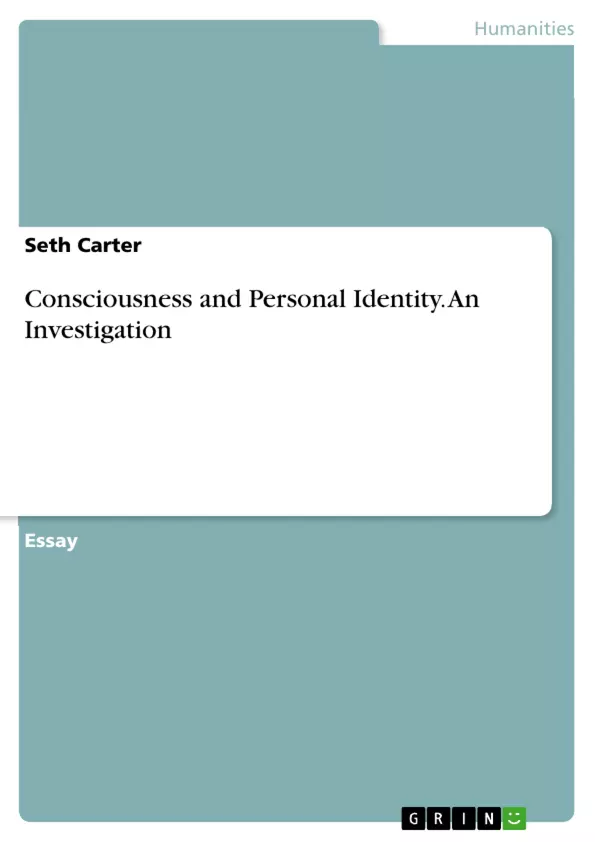The Philosophy of Personal Identity which bears a rich tradition dating back to some of the seminal psychological theory of identity forwarded by John Locke. In this essay, I propose a new variation of an imperfect psychological criterion of personal identity that attempts to precisely answer the question, "What is necessary and sufficient for a person to be the same person over time?"
Though various experts in this field such as Derek Parfit have forwarded skepticism and outright rejection of conventional theories of personal identity, this paper appeals to metaphysical notions of immanent causality in an effort to respond to Parfit and formulate a framework of identity that explains and satisfies what are often closely held intuitions on personhood.
Inhaltsverzeichnis (Table of Contents)
- Introduction
- Exposition
Zielsetzung und Themenschwerpunkte (Objectives and Key Themes)
This essay aims to propose a framework for understanding personal identity based on the phenomenological basis of a continued stream of consciousness across time, drawing from the concepts of William James and John Locke. It will then explore the potential issues with physical duplication and the implications of an emergent understanding of conscious streams.
- Personal Identity and the Problem of Duplication
- Consciousness and the Stream of Mental States
- Emergentism and the Continuity of Consciousness
- Memory Theory and Biological Criteria for Personal Identity
- Epistemological Concerns and the Determination of Personal Identity
Zusammenfassung der Kapitel (Chapter Summaries)
- Introduction: The essay begins by introducing Derek Parfit's teletransporter paradox and its implications for our understanding of personhood. The author argues that Parfit's thought experiment highlights a fundamental deficiency in many theories of personal identity, which often neglect the subjective experience of consciousness.
- Exposition: This section delves into the historical development of theories of personal identity, focusing on the ideas of John Locke and William James. The author argues that while these thinkers have contributed significantly to our understanding of consciousness, their frameworks may not adequately address the complexities of physical duplication or body switching. To address these issues, the author proposes a framework for personal identity based on the contemporary paradigm of emergentism.
Schlüsselwörter (Keywords)
This essay explores the concepts of personal identity, consciousness, emergentism, memory theory, biological criteria, subjective experience, and physical duplication. It draws on the works of Derek Parfit, John Locke, and William James to examine the relationship between consciousness and the continuity of the self over time.
Frequently Asked Questions
What is necessary for a person to be the same person over time?
The essay proposes a variation of the psychological criterion, focusing on the phenomenological continuity of a stream of consciousness.
What is Derek Parfit's teletransporter paradox?
It is a thought experiment that questions whether a person remains the same if their physical body is duplicated or transported atom by atom.
How did John Locke contribute to the theory of personal identity?
Locke forwarded the psychological theory of identity, suggesting that consciousness and memory are the primary factors in defining the self.
What is Emergentism in the context of consciousness?
Emergentism suggests that consciousness arises from complex biological processes but possesses properties that cannot be fully explained by its physical parts alone.
Does body switching affect personal identity?
The investigation explores how frameworks of consciousness address complexities like body switching, emphasizing the subjective experience over purely biological criteria.
- Arbeit zitieren
- Seth Carter (Autor:in), 2017, Consciousness and Personal Identity. An Investigation, München, GRIN Verlag, https://www.grin.com/document/371665



